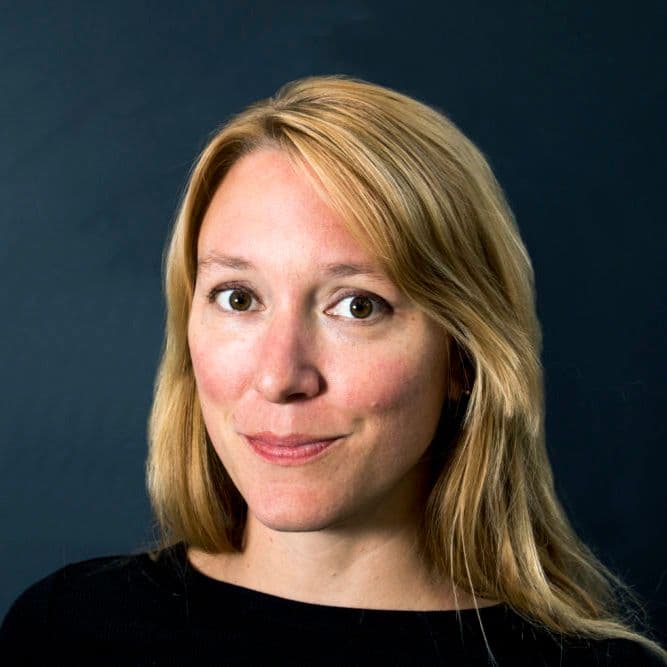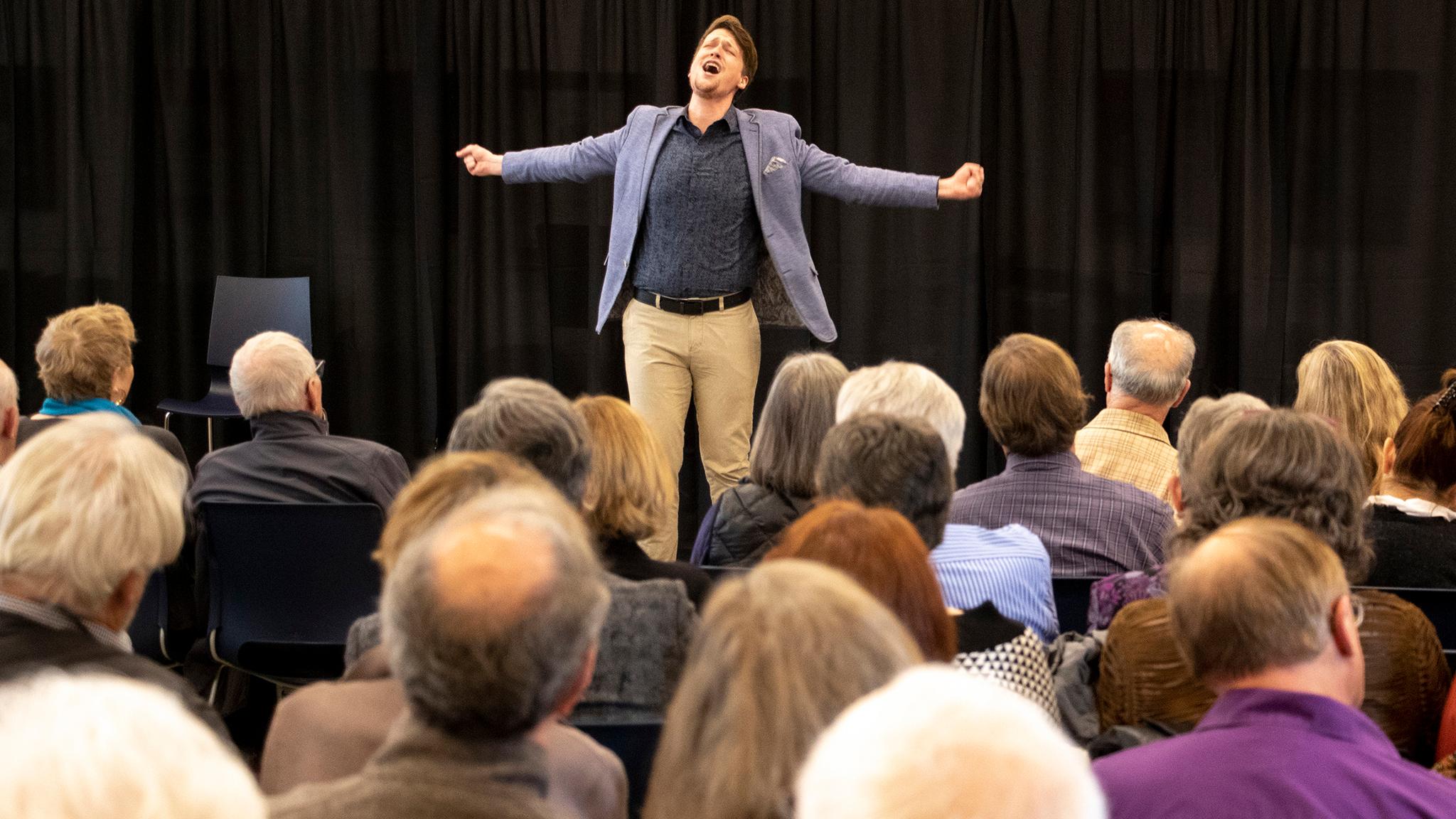It's intermission the Ellie Caulkins Opera House and the scene is about what you'd expect for the opera -- except for the photo booth.
Tonight's performance of "La Traviata" is a dress rehearsal, but much of the audience dressed Colorado glam anyway. Happy for a chance to capture the occasion, a majority-millennial procession of attendees amped it up with the provided faux fur, hats, glasses and roses, and stepped in front of the red curtain to strikes poses of comic sophistication.
Then, lights flashing to signal the end of intermission, they filed back into the theater to watch the original "hooker with a heart of gold" die, hitting crystalline high notes on her way to the other side.
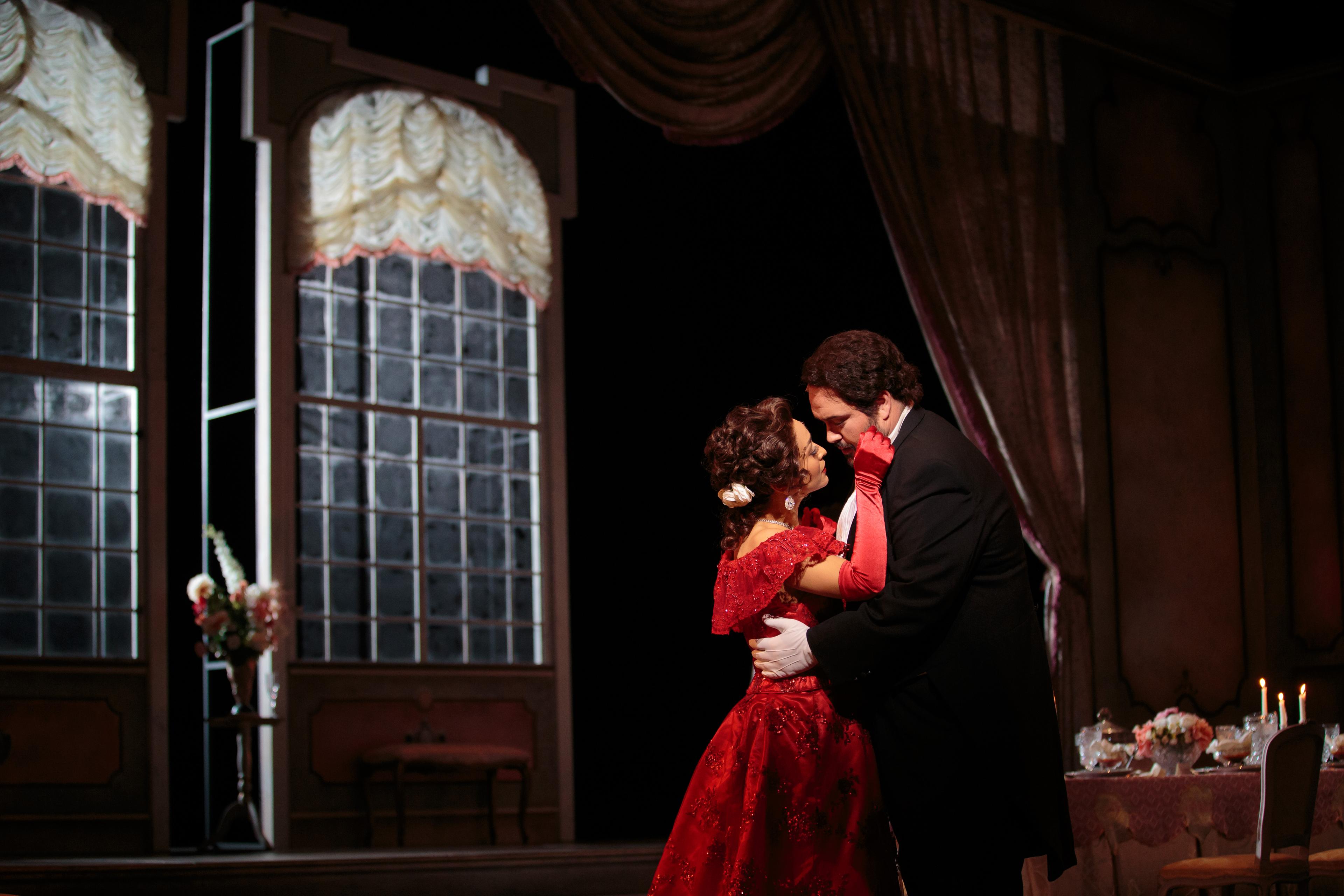
"La Traviata" is canon. A photo booth at the opera, not so much. Together, they're a picture of the future at Opera Colorado, an organization that through hard work and some good fortune just entered a period of growth and big potential as other opera companies around the country struggle.
Opera has long been the least popular of the performance arts. National Endowment for the Arts studies show consistently low attendance in comparison to jazz, classical music, Latin music, outdoor performing arts festivals, musicals, plays and ballets.
In 2017, 2.2 percent of U.S. adults who attended at least one performing arts event went to the opera -- 5.3 million people. Ballet performances were attended by 7.6 million people, classical music drew 21 million people, plays brought out 22.9 million people and musicals attracted 40.2 million people.
So if opera can figure it out, that's probably good news for the more popular fine arts. If they can't, it could be an early warning for the rest.
Last year, Opera Colorado learned it was one of 35 Denver organizations getting a piece of the $43 million Bloomberg Philanthropies program, which includes financial support, regular management seminars, one-on-one consultations and "activities that strengthen their long-term health and goals." Meanwhile, the marketing team had commissioned some research and was beginning to comb through the results and develop new practices.
A $1 million anonymous donation also helped.
Earlier this week, the organization announced that it was expanding from two to three fully staged productions at the Ellie Caulkins Opera House in the 2019-20 and 2020-21 seasons -- a response, the press release said, to its largest subscriber base in a decade and a string of sold-out performances.
"The three of those things sort of came together, you might say, in about a five-month period of time and allowed us to then start thinking about creating a strategic plan artistically and financially to move forward in that direction," said Greg Carpenter, general and artist director of Opera Colorado, "and this is the first step toward that."
Survey says...
It all started with some staff turnover before the 2017-18 season. With a new team in place, Opera Colorado decided to take a new approach to marketing. Led by Managing Director Paul Deckard and Director of Marketing and Audience Development Tamara Vallejos, they carved out some room in the budget and hired a company out of Boulder to help conduct market research.
In the end, they spoke to 350 Opera Colorado patrons and 100 prospective patrons, with focus groups broken up into "opera enthusiasts," "opera occasionals," "opera curious" and "opera conflicted."
"I was really happy about what we learned," Vallejos said. "I'm a millennial. I'm 32. I love opera. And I have always been really turned off by this approach to marketing the fine arts as almost trying to trick people into coming to see you. Trying to trick people by saying, 'Lets do minimal amounts of opera but have it in a bar, then the young people will come out.' It always has felt very condescending to me. It's also always coming from a demographic that's not my demographic."
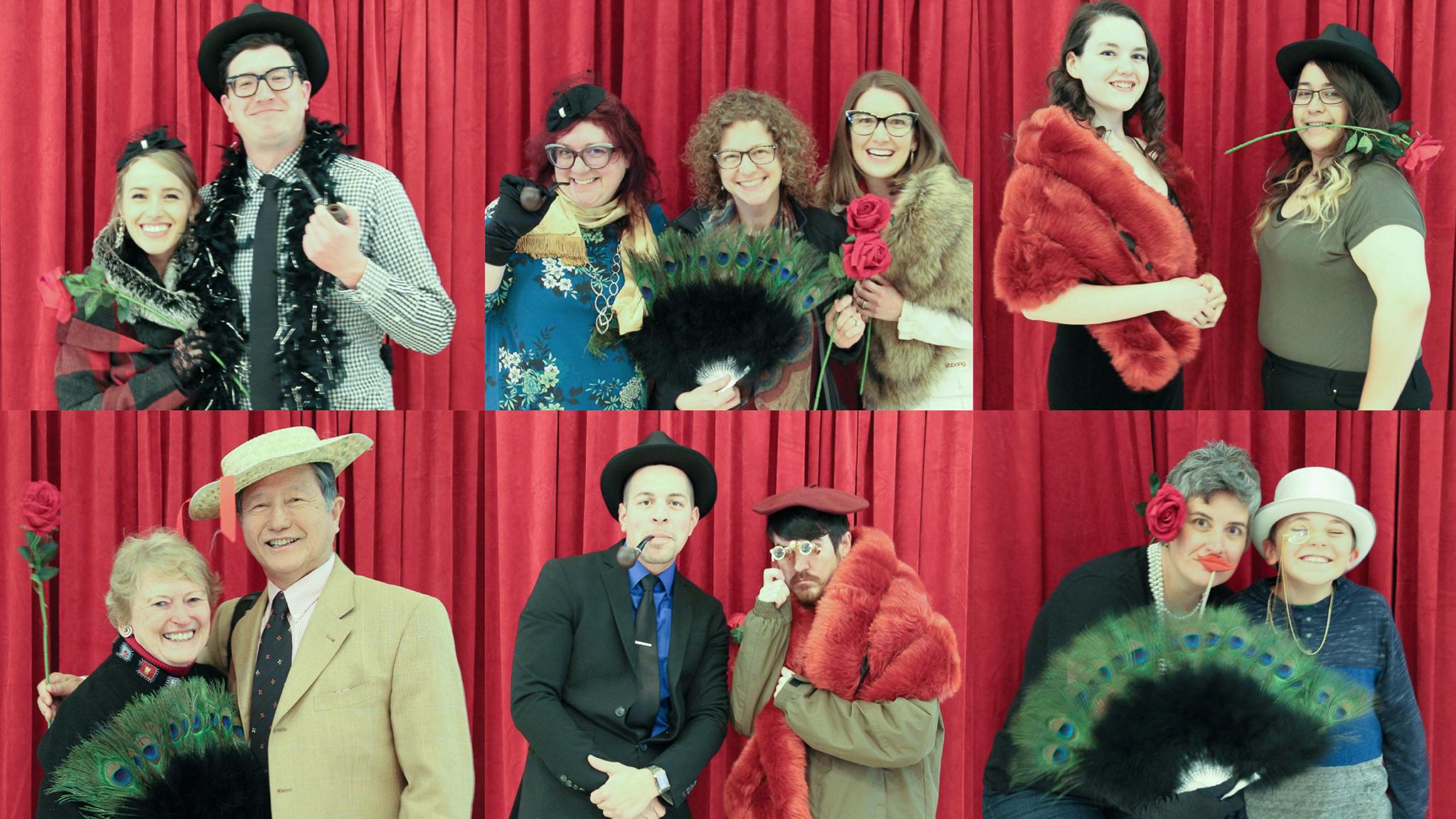
Here are some quick hits from the survey:
- The largest age demographic of current patrons is 65 and older.
- The next largest were 25-34 and 35-44, which together outnumber the 65 and older group.
- Most current Opera Colorado patrons surveyed have a graduate degree or four-year degree.
- The 25-34 and 34-44 age groups were a close first and second for number of prospective patrons.
- The number of 18-24 years olds who are prospective patrons was triple that of the number who are current patrons.
- Education levels were more evenly distributed across the prospective patron group, the top two being those with a four-year degree or some college.
- Both current and prospective patron groups were majority female -- the latter especially so.
Each focus group was asked questions about what kinds of arts and entertainment experiences they'd had in the prior six months, their relationship with opera and the arts, their relationship specifically with Opera Colorado and their perceptions of Opera Colorado and its patrons.
Among "opera enthusiasts," for example, 34 percent cite opera as their favorite arts event, 23 percent instead chose theater and musicals as their favorite, and 15 percent chose classical concerts. They strongly identify as typical Opera Colorado patrons, who they describe as middle-aged, upper middle class people who like "artsy events," among other characteristics.
Feedback they got from "opera enthusiasts"? The season is too small and they want more main-stage productions. (Check!)
Each focus group also spent some time drawing their ideas of a typical opera patron:
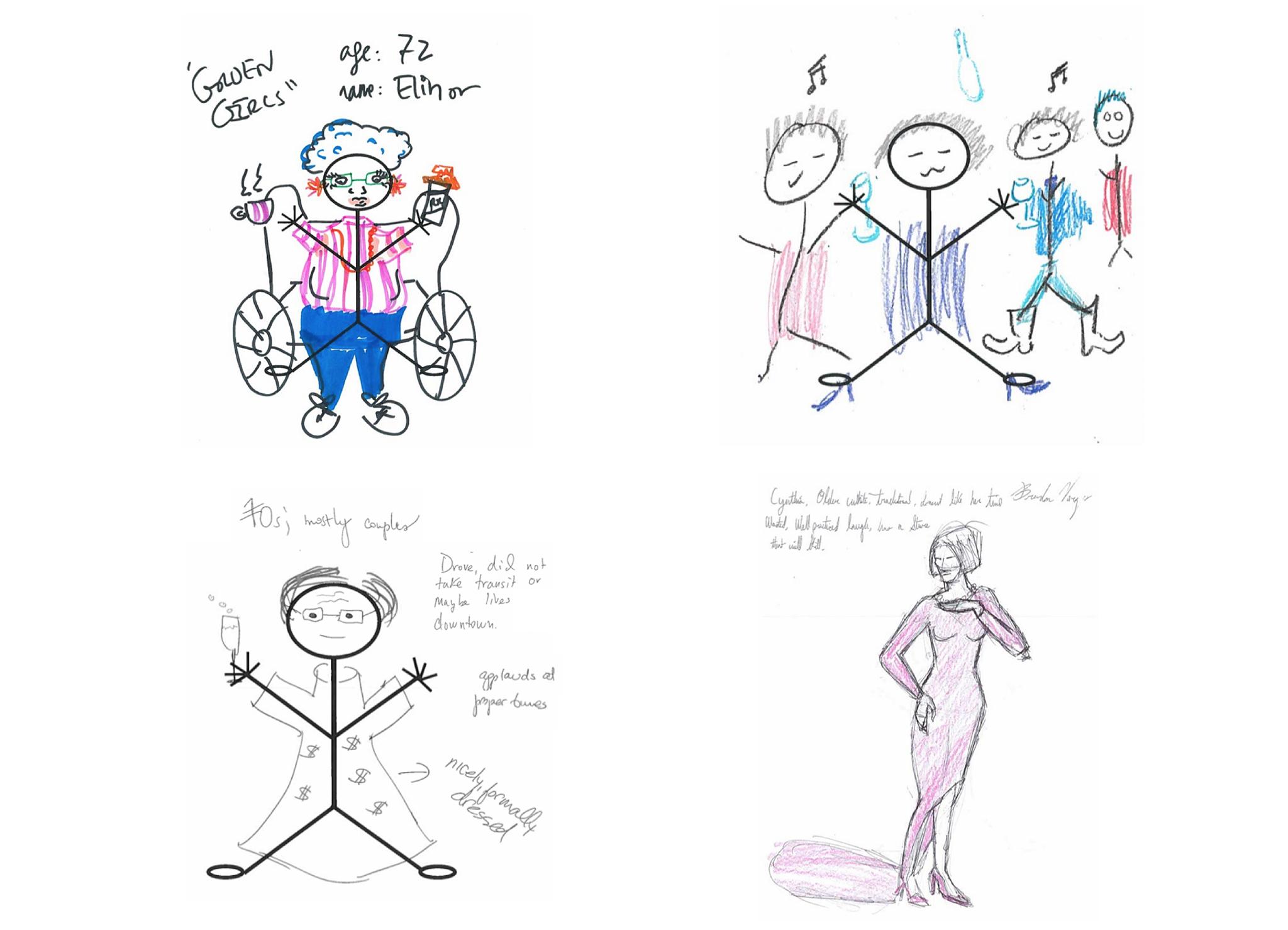
The "opera occassionals" imagine someone 50 or older who is affluent, educated, knows a lot about opera and probably prefers traditional operas to something new or experimental. The "opera curious" also imagine an older crowd, one comprised of the "who's who" elite of Denver, people who live in Cherry Creek, people who buy special outfits for the opera and who attend to be seen rather than for the art. The "opera conflicted" picture someone old, stuffy and white.
All told, one conclusion stands out: young people might want to attend the opera, but they don't see themselves as opera patrons. What Opera Colorado needs to do now, Vallejos said, is chip away at that stereotype and remove other barriers through awareness.
"What I loved about hearing form our prospects -- for them, the art was not the barrier, the pomp and circumstance of opera was not the barrier, we didn't need to make opera more avant garde and weird. What we needed to do was eliminate all these blind spots that we have and meet patrons where they are," she said. "...We need to be better about how we message and how we communicate, and that's awesome because we can do that."
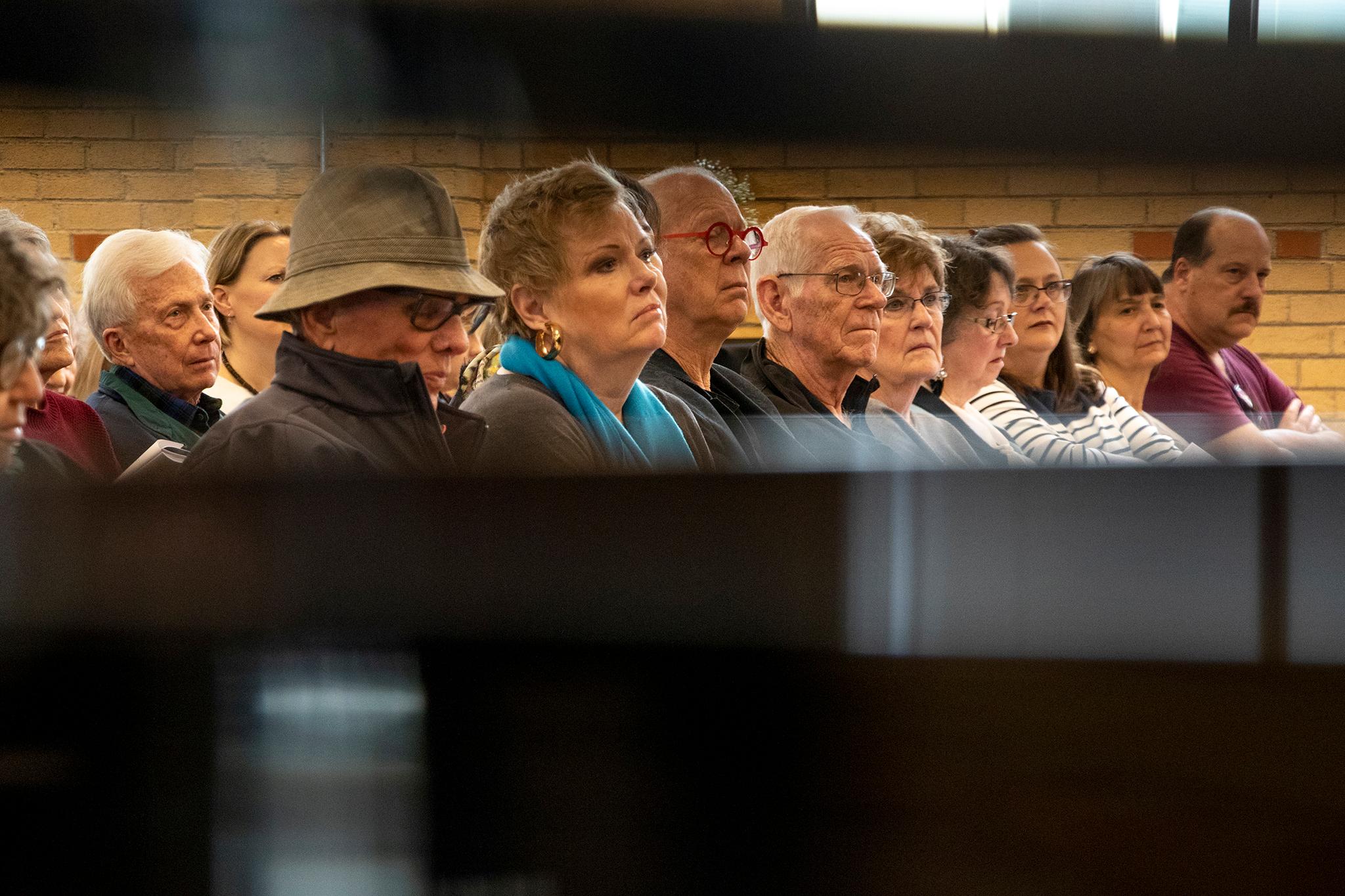
Some of this is pretty straightforward. It's about more clearly advertising things like where to park, what parking will cost, what to wear and what's available to eat and drink. One thing that came up in the focus groups was that prospective patrons were worried about the language barriers in opera, and Vallejos said they were shocked to learn that the Ellie has a subtitle screen at every seat.
A bigger challenge, though, is making younger, less educated, less affluent and less white people feel like they can attend an opera and not feel out of place.
Now, they've "totally changed out approach to our visual identity," Vallejos said. Opera Colorado updated its website to be better looking and more user-friendly, and is trying out new looks in the artwork and program books for each show. They've also brought their young opera patrons group, Inside OC, out from its hidden meeting place and into the lobby of the Ellie where they can be seen hanging out, chatting and having drinks as other patrons arrive.
"We've tried to put a lot more effort into patron experience," Vallejos said. "Thinking of making patrons the center of what you're doing is bizarrely radical in some circles, and it shouldn't be. We have spent a lot more time and effort into making the opera house and making our performances feel a lot more welcoming.
"What we did hear from prospects and new patrons is that they wouldn't see people who looked like them. And so what we really wanted to do, and we did this with 'La Traviata,' is we wanted to bring more people out into the common spaces into the lobby and and to introduce more opportunities for mingling."
In one of the focus groups of prospects, they were asked if they'd feel more comfortable if they could attend the opera in jeans, Vallejos recalled. "This one guy spoke up and said, 'No, no, no, that's not the point of opera. Opera gives you 'permission to be fabulous.'"
Backed by knowledge and a couple funding boosts, Opera Colorado is primed for bigger things.
"I have to say the most exciting part but also surprising part was that that 'opera curious' audience really was excited about opera on the grand scale, because there's certain aspects of our industry that's been saying, 'Do short things, do under an hour, put it in a small space, serve drinks' -- certainly not 'dumb it down,' but in their minds, make it more accessible, you might say, and keep it short because millennials don't have a long attention span. And the fact is our 'opera curious' audience told us the exact opposite," Carpenter said.
And so in 2019-20, Opera Colorado will present Rossini's "The Barber of Seville," Leoncavallo's "Pagliacci" and Puccini's "Tosca at the Ellie" in addition to smaller performances it stages outside the opera house. In 2020-21, the Ellie will host Mascagni's "Cavalleria Rusticana," Bizet's "Carmen" and the Colorado premiere of "The Shining," an opera based on the novel by Stephen King by composer Paul Moravec and librettist Mark Campbell.
The expansion is made possible by the Bloomberg Foundation's support and that $1 million donation, but also by patron enthusiasm. Carpenter said the opera company added 1,000 new subscribers over the past two seasons, "bucking the trend in most opera companies around the country."
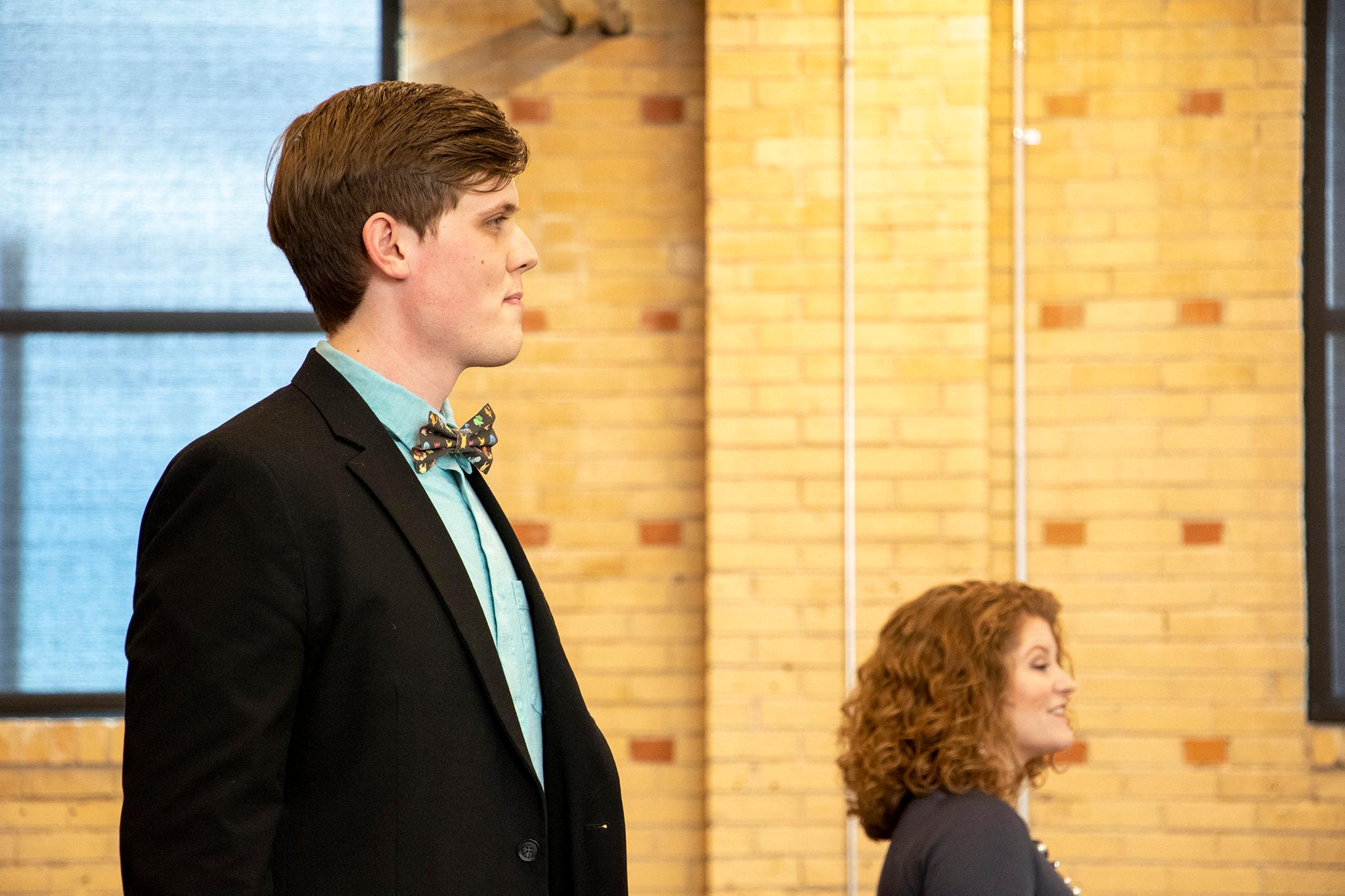
Take a look at Chicago's Lyric Opera, recently featured in the New York Times under the headline, The Opera Has A Problem: Fans Aren't Subscribing. Michael Cooper reports that the Lyric has one of the strongest subscriber bases in opera, ticket sales to subscribers doubling the number of tickets it sells to single-ticket buyers, but that number has dropped precipitously. It's now less than half of what it was 20 years ago.
It's not that Opera Colorado has been immune. Carpenter said they felt the affects of the Great Recession a few years after it officially hit. They went through a "challenging period" in 2011, 2012 and early 2013, he said, during which they dropped a production each year, made some staffing changes and "sort of reimagined the company on a leaner scale."
"It can be a little scary to think about how it's totally possible that opera could not exist in 20 years," said Nicholas Kreider, who recently completed his master's degree at Michigan State University and, at age 26, is beginning his professional opera career. He went to several auditions before he landed in Opera Colorado's Artists In Residence Program. He just performed as the Marquis in "La Traviata" and will play Pablo Picasso in "Afterlife," one of the one-act operas on a double-bill slated for the end of this month at Kirkland Museum of Fine & Decorative Art.
"It's also kind of exciting," he added, "because it kind of means that it's my job to make sure people know opera is still a thing and it's entertaining and they can actually understand."
That's Opera Colorado's job, too, which means programming each season is, as Carpenter put it, "a bit of a process."
He does all of the programming with Music Director Ari Pelto. They use a repertoire heat map that shows the revenue associated with different operas as well as the corresponding expense of putting it on, ultimately show them which operas brought in the biggest audience at the lowest cost. They start with a preliminary lineup, toss other ideas around, see how it feels artistically and think about whether there's enough variety in language and music type before they land on the final slate for the season. It's a far more savvy process than it used to be, Carpenter said.
And the way Kreider sees it, the Colorado audience has been receptive and Opera Colorado is hitting the mark.
"I think they've very fortunate. Their audience is very receptive to whatever they're doing. I think they've found the operas and the different repertoire that everyone likes, and that's really important. They're putting on the right shows for the audience they're given," Kreider said. "I think they're fortunate but also the people running the company are very smart."
So what does this future look like?
"It's hard to say what it's going to look like because to be honest I think our world is changing so rapidly," Carpenter said. "What we're experiencing today in the world we live in is probably different than what we thought it would be 10 years ago and it will probably be vastly different 10 years from now. What motivates people to get out and participate, I think, changes pretty rapidly.
"One of the things that is particularly exciting about opera is ... the stories of opera still have relevance in the very contemporary world we live in, and even new opera -- we have an initiative to do new opera -- I think some of the new works that are being done, whether they're full length or shorter chamber pieces, they have stories that resonate in community. And that is part of why opera is starting to see a bit of a renaissance across the board, across the country. Because the stories still touch us in some way."
